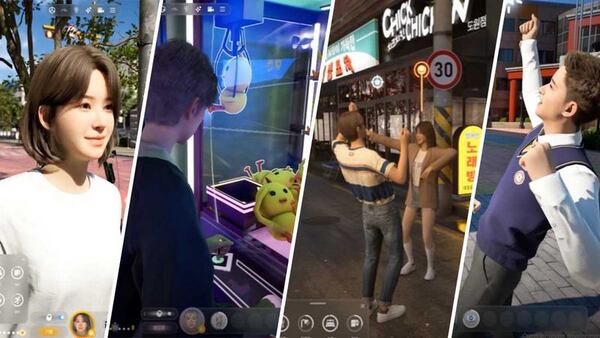Popular Now
Inzoi is not just another life simulation game—it’s a revolution in how virtual lives are lived, shaped, and experienced. While many players are charmed by its visuals and design tools, it's the Advanced Life Simulation AI System that truly redefines the genre. This AI-driven system makes every in-game decision, relationship, and behavioral change feel genuinely human. In this article, we’ll explore this feature in-depth—from its foundational concepts to the intricacies of emergent behavior and emotional evolution. Strap in for a deep dive into the most sophisticated simulation mechanics Inzoi has to offer.
-
Foundations of the AI System in Inzoi
At the core of Inzoi's life simulation experience is an AI framework built to replicate not just decision-making, but the reasoning behind it. This isn’t just about choosing between eating or sleeping—it’s about simulating desire, ambition, personality, and emotional nuance.
The system relies on modular behavioral models, using probabilistic decision trees enhanced by neural network learning patterns. The result? Characters who don’t just react—they learn, adapt, and evolve based on their environment and experiences.
Key Concepts:
-
Desire Trees: Hierarchically structured models of wants and needs
-
Feedback Loops: Recurrent systems that reinforce or weaken future decisions
-
Experience Encoding: Emotional memory stored as dynamic variables
-
Personality Initialization and Adaptive Traits
When a character is created in Inzoi, their personality isn’t just a list of static traits. Instead, it's a set of initial conditions for an evolving AI personality matrix. Every trait—like optimism, impulsivity, or ambition—acts as a starting vector rather than a fixed parameter.
Over time, the character's interactions with the environment and other Sims reshape these vectors, allowing personalities to mature or regress. For example, a shy individual can gradually become more sociable through positive reinforcement from group interactions.
Real-Time Trait Evolution:
-
Adaptive personality shifts based on life events
-
Dynamic interplay between core and auxiliary traits
-
Memory-based triggers that reshape personality arcs
-
Decision-Making Engine: Beyond Routine AI
Inzoi’s AI doesn’t run on a simple task queue. Instead, it uses a dynamic decision matrix that considers internal states, environmental factors, social influences, and long-term aspirations. Choices aren’t random—they’re weighted and contextual.
Every action has a 'cognitive load' and 'emotional resonance' value. These abstract metrics inform whether a character pursues a risky venture, avoids confrontation, or takes initiative. Over time, these decisions alter how future choices are evaluated.
How It Works:
-
Cognitive Load Analysis: Measures the mental effort required for a task
-
Goal Alignment Index: Determines compatibility with life goals
-
Risk-Reward Matrix: Simulates real-world decision consequences
-
Emotional AI and the Mood Engine
Inzoi’s emotional AI system is perhaps its most nuanced innovation. Characters don’t just feel “happy” or “sad”—they experience layered emotional states with intensities, triggers, and memory retention.
The mood engine tracks ongoing emotions and their root causes. A failed job interview might trigger disappointment, which later bleeds into hesitation when applying again. Conversely, positive memories build momentum, creating emotional inertia toward joy.
Emotional State Examples:
-
Compound states (e.g., “anxiously excited”)
-
Long-term emotional scars
-
Interpersonal emotional feedback (mood contagion)
-
Relationship Dynamics: Fluid and Reactive
Relationships in Inzoi are never binary. Unlike traditional sims with basic “friend” or “enemy” meters, Inzoi uses a multi-dimensional relationship matrix. Every interaction impacts respect, affection, envy, trust, and many other vectors.

Moreover, characters track past interactions and weigh them differently over time. A betrayal five in-game years ago may still affect trust, especially if unresolved. Characters remember slights—and kindnesses—and act accordingly.
Factors in Relationship Evolution:
-
Interaction history weighting
-
Personality compatibility matrix
-
Shared experiences and group memory
-
Learning Through Experience: AI Memory Systems
Every moment in Inzoi is stored in an AI memory bank. These aren’t just logs of actions—they’re emotionally charged entries with varying degrees of permanence. This system allows characters to learn organically from both success and failure.
Repeated exposure to certain events strengthens neural patterns, encouraging habits or aversions. A Sim that burns food frequently might avoid cooking until encouraged. Positive cycles of reinforcement, such as repeated praise, build confidence.
Memory Encoding Types:
-
Short-term emotional flashpoints
-
Long-term character-forming events
-
Group-shared events with collective recall
-
Social AI and Community Simulation
Inzoi takes social interaction beyond the individual. Its community simulation includes macro-patterns of culture, gossip, trends, and group identity. This enables societal evolution based on aggregate behavior rather than scripted norms.
Sims influence each other’s tastes, beliefs, and behaviors. A local character’s popularity can shape fashion, music choices, or even political opinions of others nearby. Emergent behavior creates the illusion of a living, breathing society.
Macro-AI Features:
-
Opinion ripple effects
-
Trend adoption and decay curves
-
Localized cultural micro-climates
-
Ambition, Goals, and Life Paths
The AI doesn’t just simulate daily life—it simulates purpose. Characters have goals ranging from simple (owning a pet) to lifelong ambitions (becoming a world-renowned artist). These goals evolve, stall, or transform based on circumstance and influence.
What’s impressive is the interplay between ambition and feasibility. Characters learn to pivot: a failed musician might find fulfillment as a teacher, based on growing social bonds and mentoring success. This dynamic prevents stagnation.
Ambition Path Mechanics:
-
Goal reassessment after life events
-
Support or sabotage by other characters
-
Personality-aligned pathfinding
-
Conflict, Consequence, and Resolution
Real life includes friction, and Inzoi embraces that. Conflict in Inzoi isn’t binary—it involves degrees of grievance, retaliation likelihood, and forgiveness models. Sims don’t just fight; they negotiate, hold grudges, or change based on reconciliation.
The resolution system evaluates apology sincerity, emotional state, and relationship history. It’s possible for a character to forgive and move on—or remain bitter, subtly sabotaging others. This adds drama and realism to even mundane situations.
Conflict Components:
-
Trigger event memory strength
-
Resolution context (private vs. public)
-
Emotional fatigue and breaking points
-
Long-Term AI Progression and Generational Inheritance
Perhaps the most groundbreaking element is generational AI. Traits, behaviors, and emotional patterns can subtly transfer to offspring. This isn’t just aesthetic—it’s behavioral inheritance coded into the AI DNA.
As Sims age, their accumulated experiences create a legacy, shaping how children perceive the world. A nurturing parent might produce a confident child, while a chaotic household can breed anxiety and avoidance. Over generations, cultures form.
Generational AI Highlights:
-
Inherited emotional bias and risk tolerance
-
Learned behaviors based on role modeling
-
Social inheritance through legacy goals

Conclusion
Inzoi’s Advanced Life Simulation AI System elevates the life sim genre to unprecedented levels. With its real-time learning, evolving relationships, emotional nuance, and societal interplay, the game blurs the line between simulation and reality. Each character feels alive—not because of scripts, but because of emergent, AI-driven life stories that adapt and evolve. For fans of deep, organic gameplay, this system isn’t just impressive—it’s revolutionary.


















